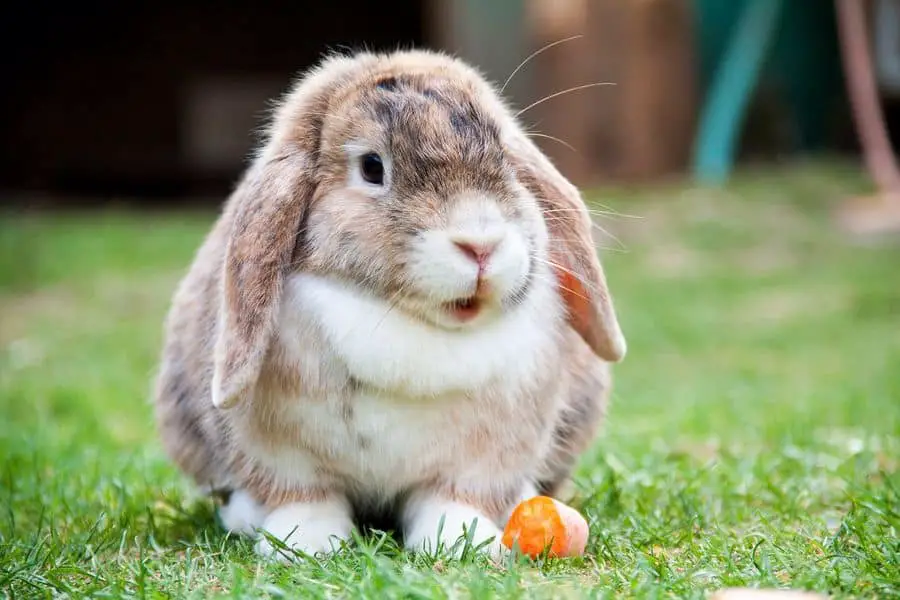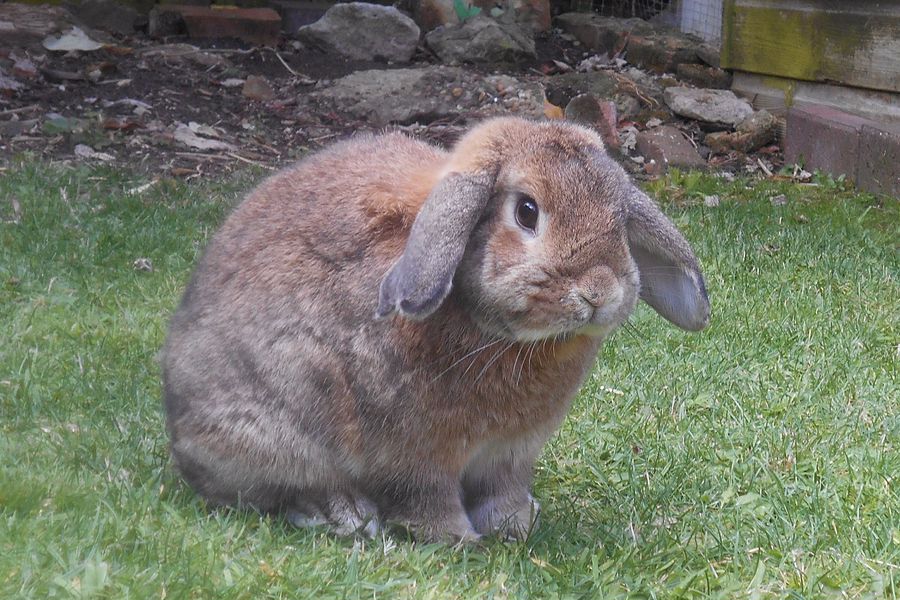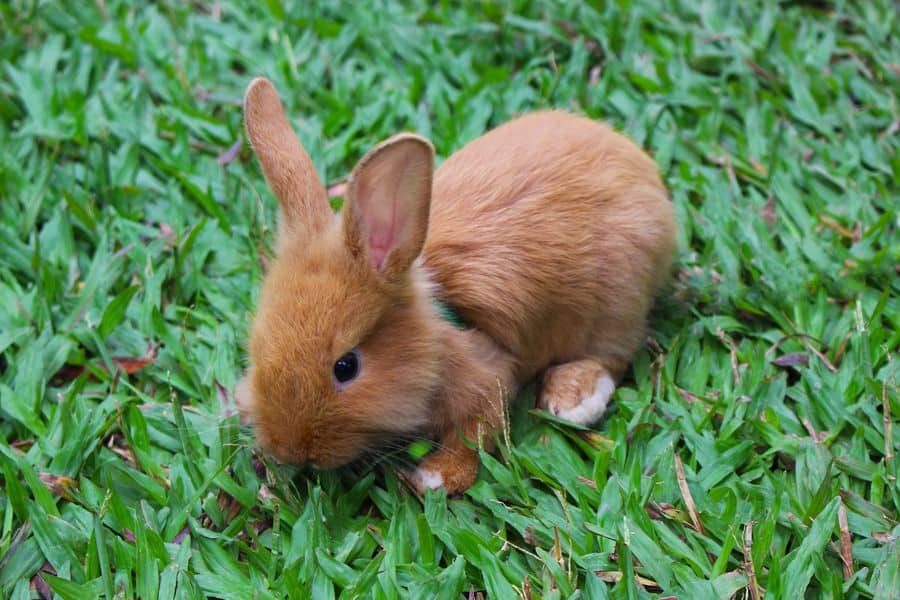Why is my rabbit sitting in one spot? Is this normal, or should you feel worried? It’s essential that you understand the various rabbit behaviors, including the explanations of why rabbits sit in one corner and how you should react to it.
Contents
Why Is My Rabbit Sitting in One Spot?
Your rabbit may sit in one spot as a safety mechanism if it feels afraid or senses danger. It may also sit in one corner when nesting, resting, eating, or molting. In some cases, bunnies stay in a single spot when they feel unwell, shy, or cautious about something new.
It’s common to see rabbits sitting in one corner for long periods, especially in the wild. However, domesticated ones would also have various reasons for doing so, enabling you to understand your pet’s behavior and mannerisms.
Resting
Rabbits can sleep in the strangest positions, sometimes even with their eyes half-closed or completely open. Thus, you may see your rabbit sitting in one spot, and it might be resting to gain energy.
Even if your rabbit has a den or sleeping tent inside the cage, there may be times when it would want to recuperate while outside the burrow to observe its surroundings. Your pet may also stay in a single spot during the colder season to preserve energy.
Eating
In the wild, rabbits sit in one corner because there’s a food source they don’t want to abandon. In a cage, a rabbit may find a favorite spot to eat.
Safety Mechanism
Rabbits are naturally small, making them an easy target for larger predators. Even pets retain the instinct of being aware of their surroundings at all times, which is why they choose a single spot to sit and avoid other animals.
- If you see your rabbit sitting in the same spot for a long time, it may be because large cats or dogs roam around the cage. Your pet may sit on its hind legs while pointing the nose upward to smell for potential predators.
- Rabbits can hear sounds more clearly than humans, and loud ones can easily unsettle them. Some rabbits feel afraid due to noise from vehicles, foot traffic, and even loud music. They may look for the best place to sit and avoid such sounds.
- If this is the bunny’s first time at your home, it may sit in one spot to gauge the surroundings. Your pet will find a safe area as it adapts to its new home.
- Suppose you adopted a new rabbit and you want to put it in the same cage with another rabbit. As a response, your old pet may hang around the corner and be cautious before interacting with the other bunny.
- Some rabbits like to have alone time by sitting in one corner, especially if they feel shy around humans.
Nesting
Mother rabbits are responsible for building a nest to house their young bunnies. They will find something underground to protect themselves against predators in the wild.
Since this doesn’t apply in a cage, they may find a corner to serve as a safe space for nesting. The mother rabbit may stay sitting in that spot as a preparation until it’s time to give birth. After birth, they may retain the nesting area to feed their young.
Feeling Unwell
Pain due to an illness or injury is another reason why your rabbit will sit in one spot. Depending on the severity, your bunny may also stay hunched, grind its teeth, and breathe so fast.
If this behavior of sulking or sitting in one corner happens for a long time, check for other potential signs like change in appetite, saliva dripping, bloating, and weight loss.
Molting or Grooming
During the molting season, your rabbit would lick its fur to groom the body. Rabbits generally want to groom themselves close to their nest or in one corner of the cage.
Satisfaction
In some cases, your rabbit may sit happily in one corner if it doesn’t need anything from you.
While rabbits like to play around and roam freely, they also feel content when they can stay and sit in one place. This particularly happens when they have everything they need, including shelter and food.
What Should I Do If My Rabbit Is Sitting in One Corner?
Your rabbit would sit in a single place for typical reasons such as resting, eating, nesting, grooming, or even just when they feel satisfied. However, there may be times when your pet would sit in the same spot because it feels sick, afraid, or shy.
Regardless, there are several ways you can react to this behavior.
- If your bunny is sitting because it feels anxious, it’s best to leave it alone for a while. Otherwise, it may feel more afraid and start to show aggression.
- Try to leave snacks and toys to encourage your pet to move.
- Remove scents or noise distractions.
- If you don’t want to leave your rabbit alone, yet it seems not safe to pick it up, sit somewhere close to the cage and wait for the rabbit to approach you.
- If your pet is sitting while breathing faster than it should or has an unstable fecal output, it’s best to bring your rabbit to our clinic for a physical examination and laboratory tests.
Related Questions
Are Rabbits Good Pets for Kids?
Yes, rabbits are good pets for kids as long as there’s adult supervision. Rabbits are gentle, sociable, and playful, making them ideal for children. However, kids should also learn how to properly pet and care for them.
How Can I Make Cage Time More Enjoyable for My Rabbit?
Your rabbit should feel safe and happy in the cage because it will serve as its nest. Put rabbit toys, a comfortable sleeping mat, and a bowl of water and veggie snacks to improve living conditions.
Conclusion
Rabbits sit in one spot when they feel unwell, threatened, or cautious. They may also stay in a single corner while nesting, eating, or grooming. Although some causes are usual, others may be a symptom of an illness, so schedule vet visits for your rabbit to rule out any medical concerns.



